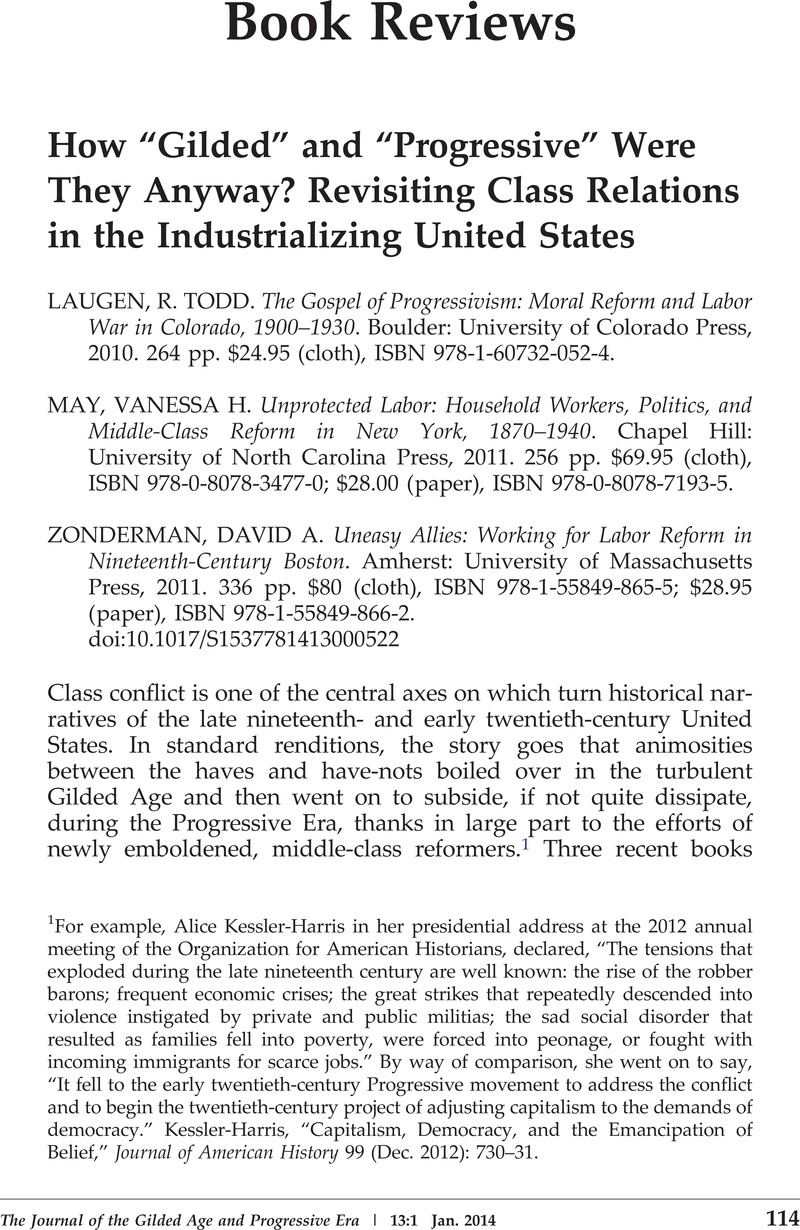No CrossRef data available.
Article contents
How “Gilded” and “Progressive” Were They Anyway? Revisiting Class Relations in the Industrializing United States - R. Todd Laugen. The Gospel of Progressivism: Moral Reform and Labor War in Colorado, 1900–1930. Boulder: University of Colorado Press, 2010. 264 pp. $24.95 (cloth), ISBN 978-1-60732-052-4. - Vanessa H. May Unprotected Labor: Household Workers, Politics, and Middle-Class Reform in New York, 1870–1940. Chapel Hill: University of North Carolina Press, 2011. 256 pp. $69.95 (cloth), ISBN 978-0-8078-3477-0; $28.00 (paper), ISBN 978-0-8078-7193-5. - David A. Zonderman Uneasy Allies: Working for Labor Reform in Nineteenth-Century Boston. Amherst: University of Massachusetts Press, 2011. 336 pp. $80 (cloth), ISBN 978-1-55849-865-5; $28.95 (paper), ISBN 978-1-55849-866-2.
Published online by Cambridge University Press: 16 January 2014
Abstract

- Type
- Book Reviews
- Information
- The Journal of the Gilded Age and Progressive Era , Volume 13 , Issue 1 , January 2014 , pp. 114 - 120
- Copyright
- Copyright © Society for Historians of the Gilded Age and Progressive Era 2014
References
1 For example, Alice Kessler-Harris in her presidential address at the 2012 annual meeting of the Organization for American Historians, declared, “The tensions that exploded during the late nineteenth century are well known: the rise of the robber barons; frequent economic crises; the great strikes that repeatedly descended into violence instigated by private and public militias; the sad social disorder that resulted as families fell into poverty, were forced into peonage, or fought with incoming immigrants for scarce jobs.” By way of comparison, she went on to say, “It fell to the early twentieth-century Progressive movement to address the conflict and to begin the twentieth-century project of adjusting capitalism to the demands of democracy.” Kessler-Harris, “Capitalism, Democracy, and the Emancipation of Belief,” Journal of American History 99 (Dec. 2012): 730–31Google Scholar.
2 For more on Reed, see Denton, James A., Rocky Mountain Radical: Myron W. Reed, Christian Socialist (Albuquerque, NM, 1997)Google Scholar.




